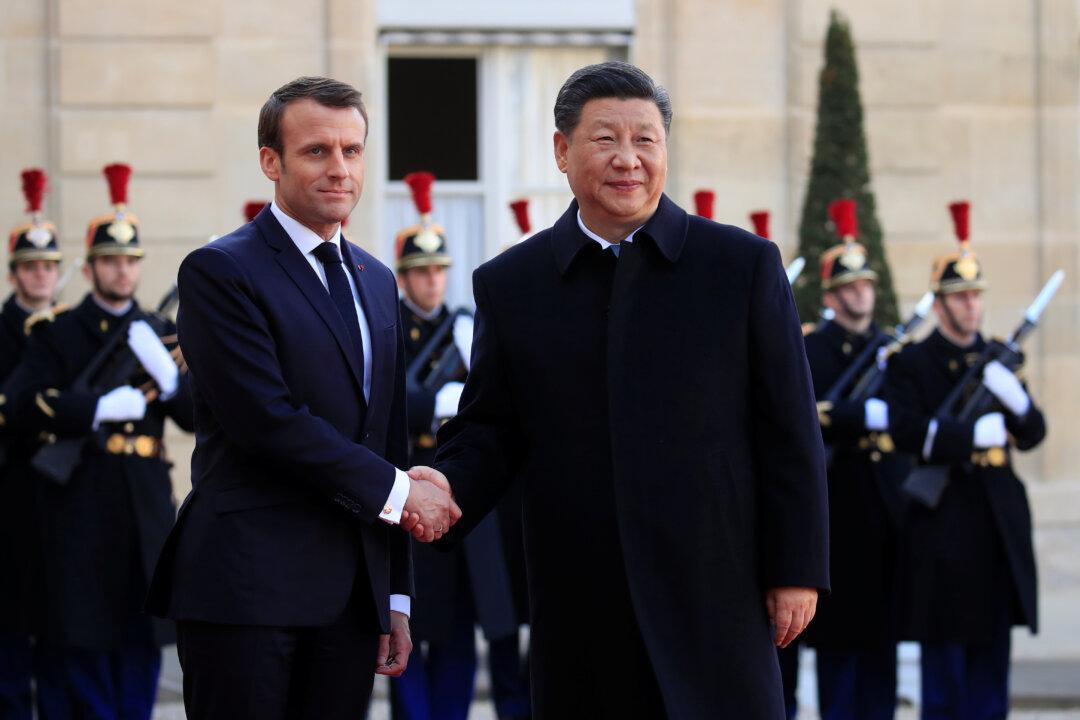PARIS—France and China will sign trade deals worth billions of euros on March 25 during a visit by Chinese leader Xi Jinping, but Paris will also take the opportunity to push back against Beijing’s “One Belt, One Road” infrastructure initiative.
President Emmanuel Macron wants to forge a united European front to confront Beijing’s advances.





